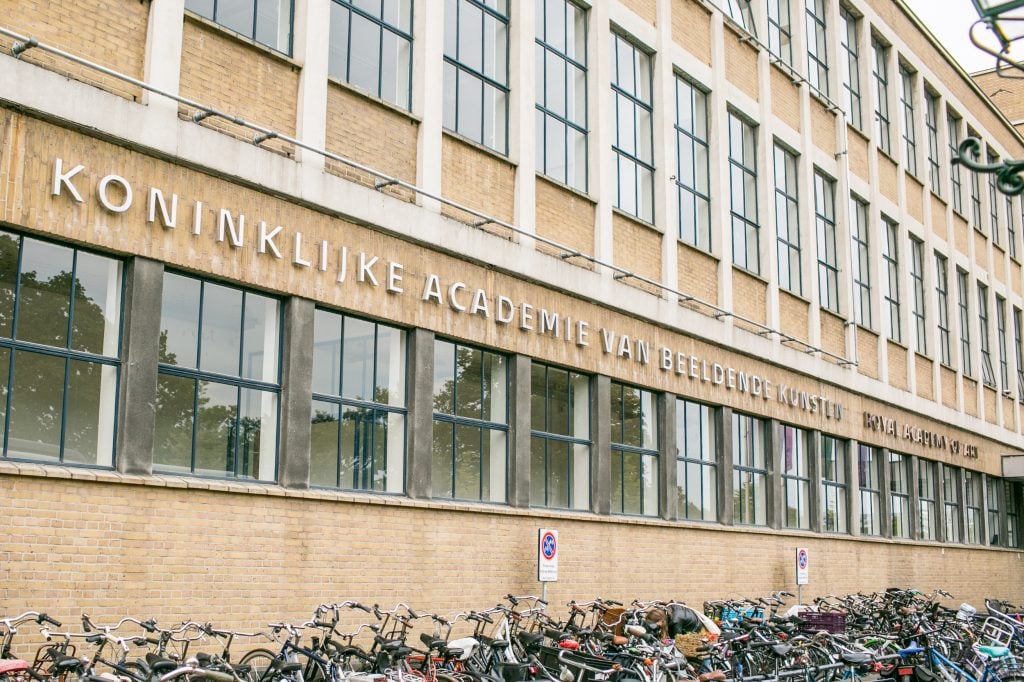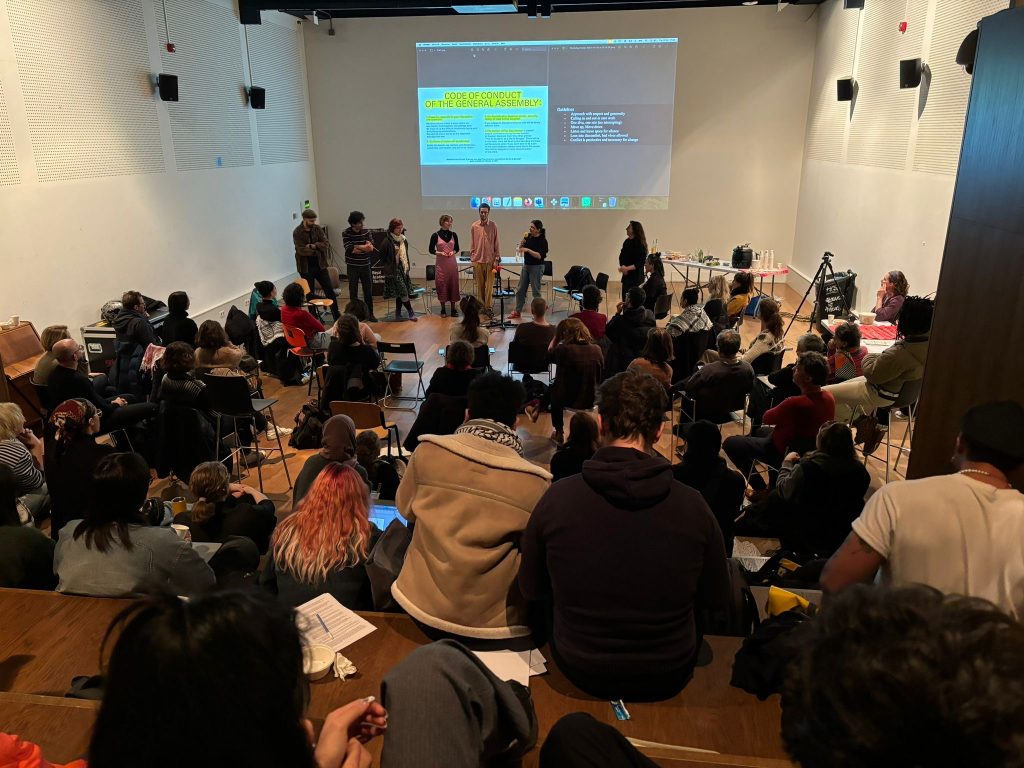Museums & Institutions
Dutch Royal Academy of Art Cuts Ties With Israeli Art Institution Following Student Protests
The KABK said it could not collaborate with a university that fails to oppose crimes against humanity.

The KABK said it could not collaborate with a university that fails to oppose crimes against humanity.

Jo Lawson-Tancred

The Royal Academy of Art (KABK) in The Hague, the Netherlands has agreed to cut ties with the Israeli institution Bezalel Academy of Arts and Design, with which it had an active exchange program between 2017 and 2019. The decision, announced on May 10, follows a months-long campaign by the KABK student union, which included a petition and a general assembly at the university on April 25.
“It is the consensus of our community that our policies and actions, together with those of our partners, must actively support and uphold universal humanitarian rights at all times,” the KABK’s board of directors wrote in a letter to the student union, announcing its decision.
The academy, which was founded in 1682 and is one of the oldest art schools in the world, is the first university in the Netherlands to agree to an academic boycott of an Israeli institution. Schools like Leiden University are also under growing pressure from a nationwide campaign by Students for Palestine, which has laid out its demands and justification in an online manifesto.
On December 25, 2023, the KABK student union sent the university’s administration a petition signed by nearly 200 students, staff members, and alumni. It noted that the two universities had an exchange program, before condemning the launch of a new initiative at Bezalel Academy of Arts known as The Bezalel Emergency Sewing Center on October 16.
“Students are tasked with fixing uniforms for the Israeli military, the same military that goes into Gaza to enact genocide,” the petition read. “Students are tasked to sew into every fixed uniform a tag that says ‘with love from Bezalel’. The very thought of this sounds obscene.”
The union said that the school did not immediately cut ties with Bezalel after receiving the petition. One of the justifications given by the school’s administration was: “We strongly fight the reflex of adopting the conflict. In a world that is increasingly hostile, xenophobic, and aggressive, we ask you to side with us to enable all in our community to experience the safe place we must be.”
This prompted the student union to organize a general assembly on April 24, an open forum intended to encourage “a community-wide conversation on Palestine and the role of cultural boycotts.”

Staff and students at KABK attend a general assembly on April 25th. Photo courtesy of the KABK Student Union.
In a letter seen by Artnet News, the KABK’s board of directors thanked the student union for starting this dialogue and for helping to bring about some “internal alignment” regarding the institution’s position on a cultural boycott.
“We choose to discontinue to partner with an institution that is not opposing a government under serious investigation for breaching human rights and committing crimes against humanity or is supporting this,” the letter said.
The Bezalel Academy of Arts did not immediately respond to a request for comment.
The KABK student union said this action “marks the start of educational institutions in the Netherlands taking responsibility and ending ties with companies and institutions complicit in colonialism, apartheid, and genocide.”
The union made other demands, including that the KABK initiate new ties with the Dar al-Kalima University in Bethlehem, and to offer the same tuition discounts to Palestinian students as have been offered to Ukrainians following Russia’s invasion. To this end, the academy’s board promised to set up a humanitarian scholarship for two students from conflict regions starting next academic year and to eventually look into new partnerships.
Bezalel has an exchange program with many art schools globally, including an active one with with the School of the Art Institute of Chicago (SAIC). The university’s adjoining museum was the site of a pro-Palestine protest by SAIC students on May 4 that saw dozens of participants arrested. On May 8, a group of the museum’s employees published an open letter in solidarity with the students and echoed their demands that the museum “end any financial support of the Palestinian genocide, direct or indirect.” Art students have been participating in many pro-Palestine protests on college campuses across the U.S. since April.